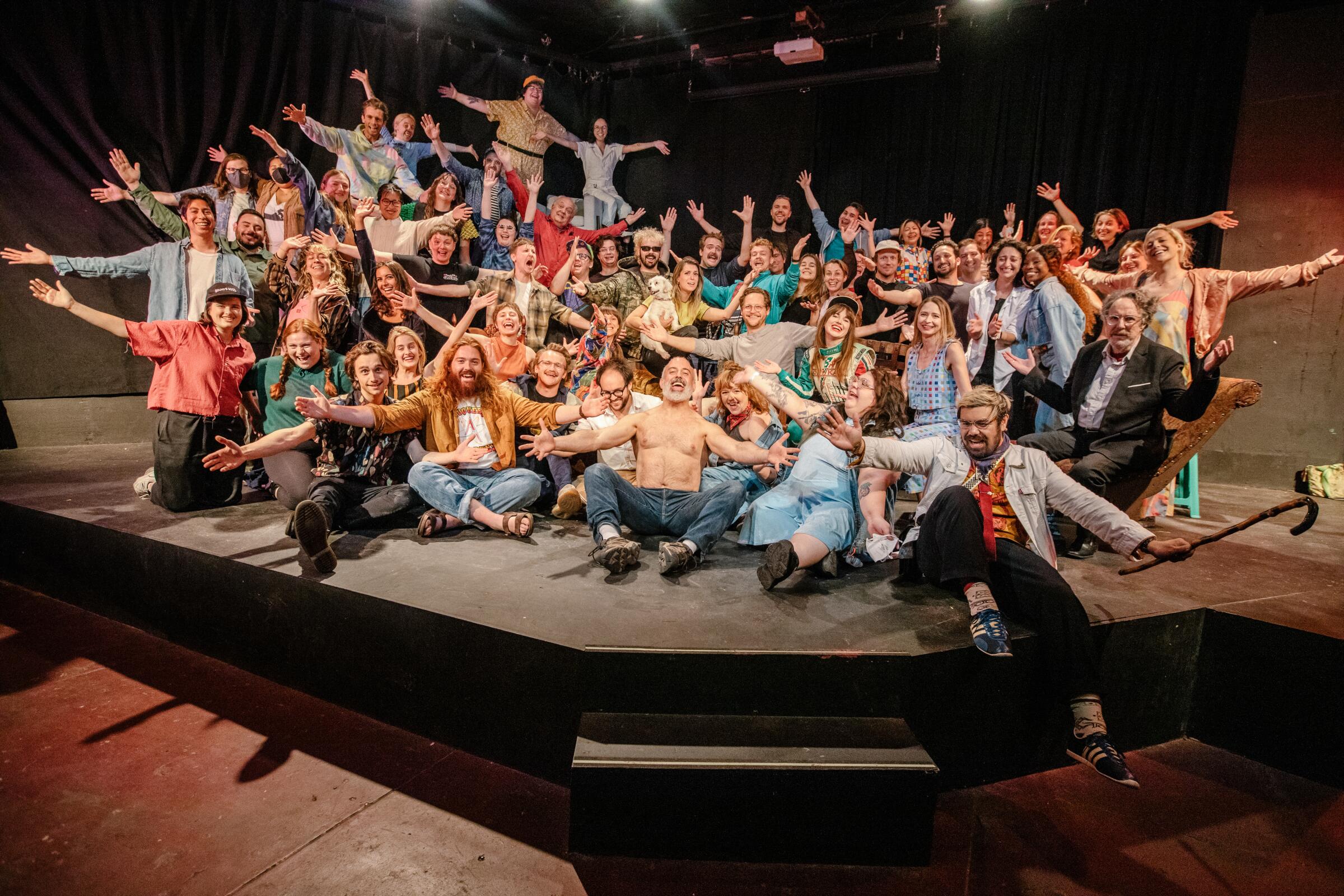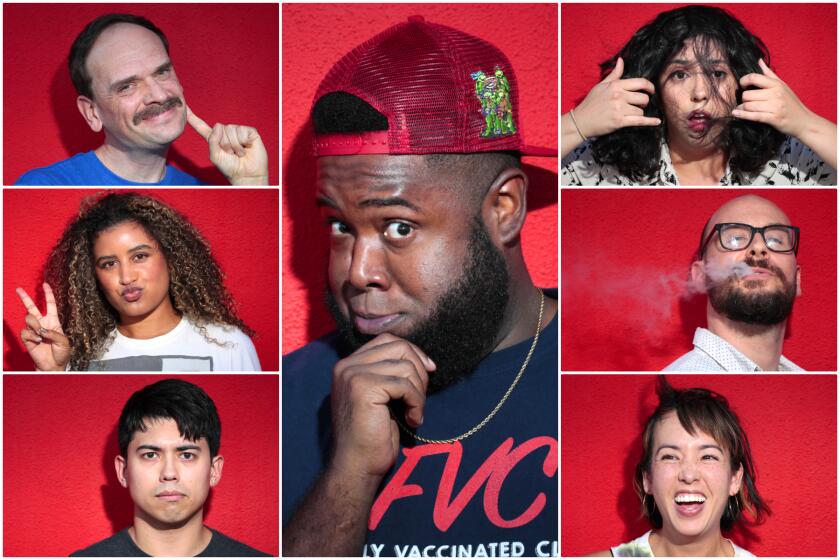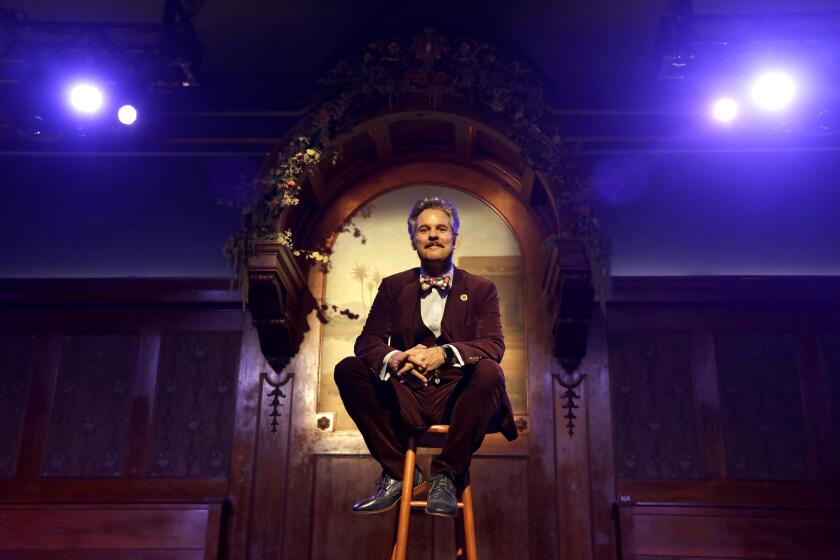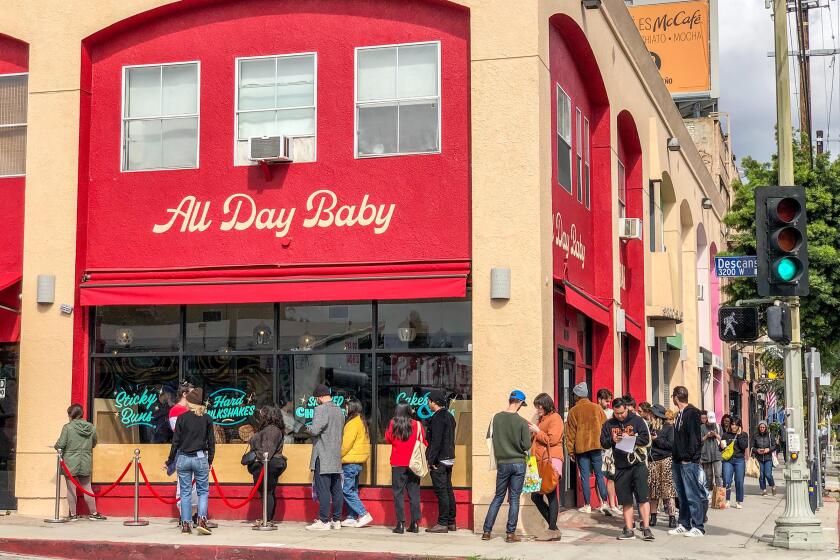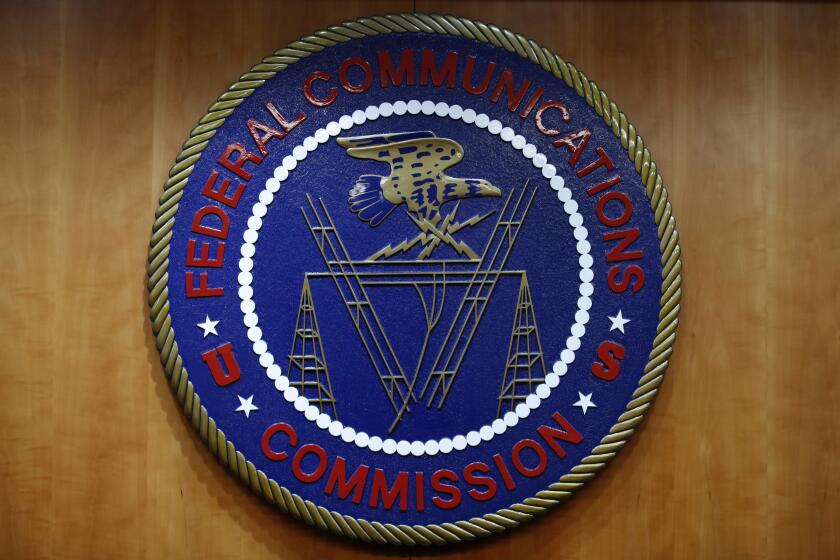Francine Orr was a staff photojournalist for the Los Angeles Times from 2000-24. She is currently a Knight fellow at the Graduate School of Visual Communication at Ohio University. Previously, she was a staff photographer at the Kansas City Star. Orr served as a Peace Corps volunteer in Yap, Federated States of Micronesia. While there, she learned how to be a quiet observer and gained a love for stories. She was raised in Colorado and earned bachelor’s degrees in both history and art from the University of Saint Mary. In 2022, Orr received the coveted Dart Award for Excellence in Coverage of Trauma and the National Headliner Award. She also won the 2020 Meyer “Mike” Berger and was a Pulitzer Prize finalist in feature photography in 2012.
1
It’s a Friday night in April, and the crowd at the Elysian Theater is belligerent. One woman shouts to the bartender on stage for a bottle of Jack Daniels, guzzles it, then takes off her bra and passes it down to him. Another guy announces that if he doesn’t drink alcohol immediately, he’ll get violently ill. Meanwhile, a woman in a fishnet top writhes on the floor while moaning and claiming to be a ghost. And then she forgets her line. “Line!” the actor Cricket Arrison calls out to the producer, Mel Barnes, who sits on stage reading the script by lamplight. Barnes yells the line — a single curse word — across the room to Arrison. The audience bursts into laughter.
Forgetting lines is the kind of thing that happens not infrequently at “Goopy,” a monthly theater production that thrives on loosely organized chaos. The characters, plot and script are created from scratch about a week before every show, and some of the performers are cast via an open call on Instagram. Tonight’s story centers on the soon-to-be-extinct Viper Room — hence the debaucherous club-goers played by actors in the audience — and the casting choices are intentionally unconventional. A white-bearded adult (Chad Damiani) plays a brooding teenager who sneaks into the club, for example, while a set of 8-year-old twins (Guy and Coleman Scott) portray his scolding parents.
“I think we’re just really like, ‘Can we see something happen onstage?’ as a dare to ourselves,” says Anna Seregina, a comedian and writer who co-created the show with longtime collaborator Kyle Mizono. “That’s what happened tonight. We were like, ‘It’d be really funny if the parents were kids,’ and then we found these kids.”
“The swear words!” Mizono adds, marveling at the boys’ improvised, foul-mouthed monologues. “That was their own interpretation. We said, ‘All you need to do is be the parents,’ and they just ran with it.”
The show is emblematic of the experimental, performer-driven programming at the Elysian, a new theater in which the boundaries between comedy, theater, and performance art are constantly being both blurred and expanded. Housed in a nearly century-old cinema with a recent history as a children’s theater, the Elysian quietly opened on Riverside Drive, near L.A.’s Frogtown, in October 2021. In the months since, it has quickly become the most exciting stage in L.A.’s alternative comedy scene. It’s a place where comedians like Kate Berlant and Natalie Palamides go to workshop genre-bending solo shows that might never be performed live the same way again. Crowds who come to witness works-in-progress sometimes end up becoming the focus of the show. Often, performers and audience members spill out onto the sidewalk afterward to process what they’ve just experienced.
“These artists are doing things that are experimental and vulnerable, and they involve the audience and the audience becomes part of the show,” says Alex Plapinger, a co-founder of the Elysian Theater and one of the six members of the nonprofit that runs it. “You get this feeling at the end of it where you’ve been on this emotional journey. The best ones, you feel triumph. You actually feel like you’ve all been through this thing together.”

(Francine Orr / Los Angeles Times)
The idea that audiences are often experiencing something entirely original and potentially unpolished or even spontaneous is part of what makes the theater’s programming so appealing — and so difficult to categorize. “Even I struggle to define exactly what makes an Elysian show different than other places,” says Plapinger, a writer and producer who works in television. “It’s gotta be experimental. It’s gotta involve the audience. It’s gotta do something new. It’s gotta be strangely emotional. There are all these qualities to it.”
Shows like Seregina and Mizono’s “Goopy”; “1,000 Ways to Slip on a Banana Peel,” in which creator Bill O’Neill takes the slapstick title as a personal challenge; and “Mrs. Joseph Chestnut, America USA,” a play by Jamie Loftus about her imagined marriage to the competitive eating champion Joey Chestnut, exemplify the ethos of the theater, bringing emotional depth to otherwise goofy ideas. Shows often oscillate among heartwarming, surprising, disgusting — at one point in Loftus’ show, she enlists an audience member to feed her a hot dog they’ve already chewed for her — and surprisingly poignant.
In the April installment of “Goopy,” for example, Mizono and Seregina, clad in plaid bondage pants purchased from Hot Topic for the occasion, play longtime staffers of the Viper Room. When they discover the club is getting razed to make way for condos, they stage a protest — mostly by shouting obscenities and flipping off the wealthy developers, played by Nicholas Scheppard and Jenson Titus. Despite (or maybe because of) all the forgotten lines and jokes about inebriation and bodily fluids, the play delivers a cutting critique on gentrification, class and identity politics.
Even shows that might appear silly or spontaneous are far from haphazard. “We take it really seriously,” says Kate Banford, the Elysian’s executive and producing artistic director, who books the programming based primarily on proposals from performers. “We have a really good, clear structure around it, so that it elevates trying stuff out and allows people to really mess around and have fun with an audience that is there to see something good, but open to seeing something fall flat on its ass.”
“She’s very encouraging of using the space to see very ambitious things that might work and might flop,” writer and comedian Seregina says of Banford. “Especially in L.A. post the pandemic [lockdowns], it feels really weird and very special — because I think so many venues closed down — to have something that is encouraging of experimentation.”
The Elysian may have just opened eight months ago, but it didn’t spring up out of nowhere. The nonprofit that runs it has roots at the Lyric Hyperion, a cafe and black box theater a few miles west, in Silver Lake. Plapinger remembers seeing a show there for the first time in 2017 and being mesmerized. “This was like the most extraordinary thing I’d ever seen,” Plapinger remembers thinking about “Incubator,” a show in which the actors create their material from scratch one night and perform it consecutively throughout the week, honing it in real time before a live audience. “It was just like, this is the most hilarious, transgressive, unpredictable — like, is this even comedy? What am I even seeing?”

Elysian Theater leaders include Kate Banford, executive and producing artistic director; Alex Plapinger, co-founder and board chair; Jocelyn Florence, board member secretary; and Natalie Palamides, board member.
(Francine Orr / Los Angeles Times)
Whatever it was, Plapinger was hooked. He began hanging out there most nights of the week and producing shows with Phil Burgers, a renowned clown performer better known by his stage name, Dr. Brown. When the Lyric Hyperion’s manager left suddenly in the spring of 2018, Plapinger and several other friends and collaborators — including Palamides, Kimberly Stuckwisch and Ian Blair, all of whom helped develop “Incubator” — decided to form a nonprofit to run the theater and attached cafe. They called it Haha Hehe Global, a name that evokes the entwined silliness and seriousness of the collective itself.
Under the nonprofit, the Lyric Hyperion thrived — creatively, at least.
“There was this group of clowns that were bringing in this very specific mentality to what could be happening in a comedy theater,” Plapinger says. “They started putting up all these shows that were just bringing the house down, and it started bringing in all these other artists and comedians.” Among them: Jacqueline Novak, who is now touring the world with her one-woman show “Get on Your Knees,” and Palamides, who worked with Burgers at the Lyric Hyperion to develop her one-woman shows “Laid” and “Nate,” the latter of which is now a Netflix special.
“I liked going to shows there because I always knew somebody would be trying something crazy,” says Palamides, who recalls that comedian Ian Bratschie ran on a treadmill on stage to make himself throw up. But her own show, “Nate,” may have been the wildest. At one point during an ax-wielding scene, Palamides says, she “missed the log and took a huge chunk out of the cement floor,” barely missing audience members. “It was really scary. It was lucky I didn’t hit anybody.”
But the chaos wasn’t just reserved for the stage; it also carried over behind the scenes. The theater struggled with staff turnover and financial difficulties, Plapinger says. By the end of 2019, he worried the collective wouldn’t be able to make payroll each week.
“Everyone sort of dug in, meaning the staff, the board, the performing community, and we just did a ton of fundraising,” he says. After about three months, “It was like, ‘Oh, my God. We’re going to be OK. We’re going to hit a point of sustainability here.’”
And then, almost immediately after that, COVID-19 hit. The theater closed indefinitely, and its revenue was obliterated.
“It was pretty terrifying,” says Stuckwisch, a music video director who has worked with Angel Olsen and Olivia Rodrigo. Her production company also shut down around that time. “I think there were many times we almost gave up. It was just like, forget it, we just have to throw our hands up, we’re not gonna survive this.”
But the board members of the nonprofit kept trying. In May 2020, their efforts began to pay off: They received a small loan to help cover payroll from the federal government’s paycheck protection program. More federal aid came roughly a year later, in June 2021, when the nonprofit was awarded a six-figure grant from the government’s aid program for shuttered venues.
“We never would be able to exist without them, so that was huge,” Plapinger says of the Small Business Administration grant.
By that point, the collective had decided they’d outgrown the Lyric Hyperion and began to hunt for a new venue — a daunting task at a time when the future of live theater itself still felt uncertain. In August of last year, they noticed a property they’d long been eying but couldn’t afford to purchase had suddenly gone up for rent. They signed a lease a few weeks later and in October held their first show. The sold-out event was a tribute to another L.A. comedy institution, the news and listings website the Comedy Bureau. It featured James Adomian and Reggie Watts, formerly of the IFC series “Comedy Bang! Bang!,” and Hannah Einbinder, who stars in HBO’s “Hacks.”
To Jake Kroeger, the writer who founded the Comedy Bureau, where he has religiously chronicled the local comedy scene for more than a decade, the Elysian filled a major void left by a combination of theater closures, consolidations and corporate buyouts.
“A lot of places that were around were barely surviving as is, and the pandemic kind of pushed them over the edge,” Kroeger says.
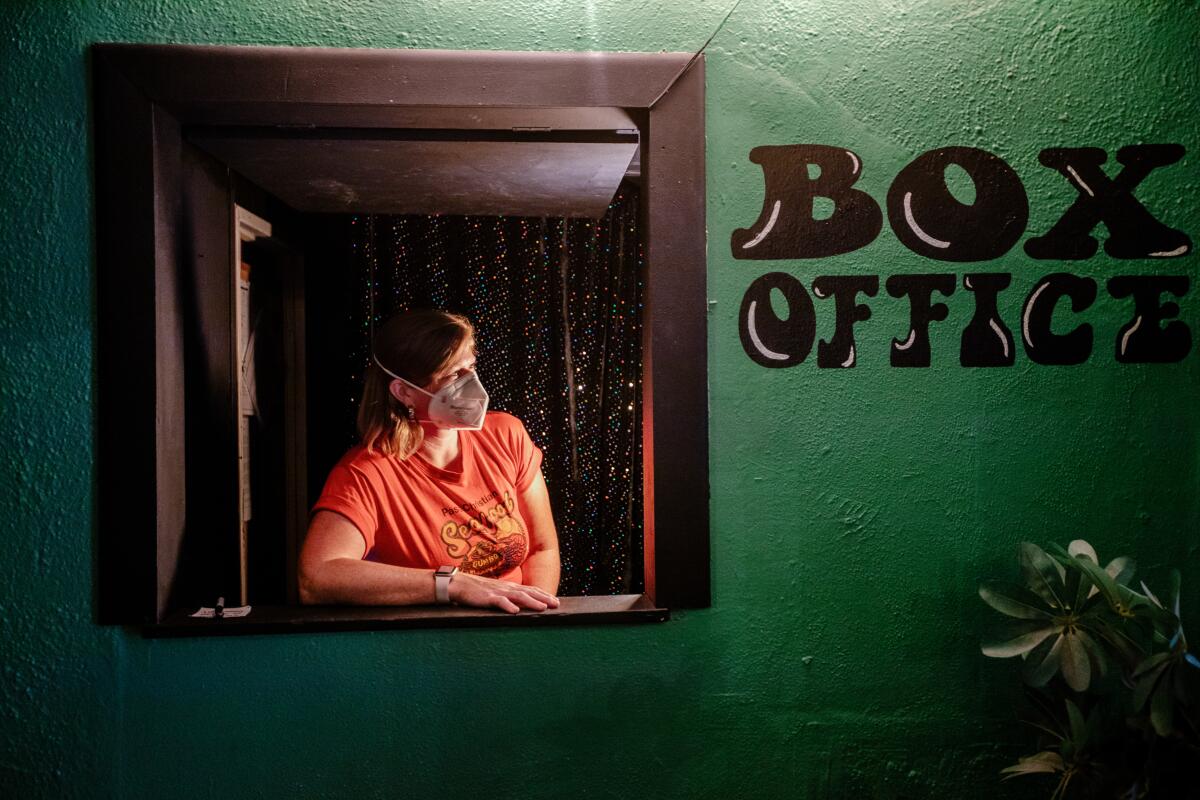
(Francine Orr / Los Angeles Times)
He notes that even heavyweight comedy franchises like Upright Citizens Brigade and Second City Hollywood have still not reopened since the pandemic hit and that both are under new ownership: UCB was acquired earlier this year in part by the owner of the Onion, and Second City Hollywood was bought last year by a private equity firm. The Virgil, another pre-pandemic comedy mainstay, also was acquired recently, by local nightclub magnate Steve Edelson, who also owns Los Globos, Catch One and El Cid. The Lyric Hyperion, meanwhile, reopened in December 2021 under new management; it still hosts live comedy events, likely with fewer axes and less vomiting than in previous years.
Still, the try-anything-once ethos of the Elysian has led to sold-out, FOMO-inducing shows and the kind of hype that can’t be bought with advertising or marketing, of which it does very little. Just last month, the Elysian hosted a series of high-profile events as part of the citywide Netflix Is a Joke festival, which was held at venues that included Dodger Stadium and the Greek Theatre.
But with the attention also comes the challenge of remaining inclusive and community-oriented. “We have to definitely find ways to just take risks on people or invite new people in,” says Banford, who cites a clowning open mic night and a submission-based variety show as examples. The Elysian also recently announced its first-ever festival, a 10-night event slated for October. It’s designed to showcase emerging performers — especially those who don’t come from a traditional comedy background — and daring new works. The submission period ends June 20.
Still, Banford says, “It’s tough to be a space that’s open and welcoming and inviting for new people to come in, while also being a space where you’re caring for the audience as well, and being like, ‘We’re giving you quality work.’ ”
Then there are the more practical challenges: Keeping the lights on and the staff and performers paid. Luckily, the nonprofit that runs the Elysian has learned from plenty of early mistakes at the Lyric Hyperion. “We’re more attentive now to how much money is coming in and where it’s going, when it’s going out the door,” says Plapinger, who adds that the theater is planning a big fundraiser in the fall. “We’re figuring out this balance of like, we can both be an organization that is fiscally responsible and is as committed to being devoted to artists doing really transgressive, unorthodox things.”
Like: Repeatedly slipping on banana peels, slurping down hot dogs, or guzzling fake whiskey to simulate the debauchery of the Viper Room. Because at the end of the day, “If someone has a crazy wild idea, I want our space to be a place where you can come as close to that as possible on a shoestring budget,” Banford says. “If you want to fly through the air on a show, we can probably make something like that happen.”
